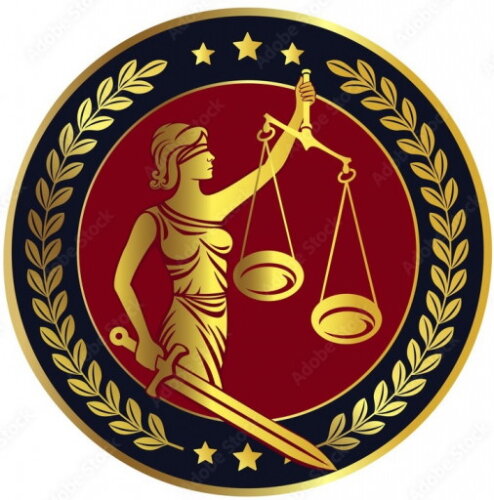Best Divorce & Separation Lawyers in Ranchi
Share your needs with us, get contacted by law firms.
Free. Takes 2 min.
Free Guide to Hiring a Family Lawyer
List of the best lawyers in Ranchi, India
India Divorce & Separation Legal Questions answered by Lawyers
Browse our 2 legal questions about Divorce & Separation in India and read the lawyer answers, or ask your own questions for free.
- Married life issue.
- How to get divorce. What is the criteria.
-
Lawyer answer by MAH&CO.
Thank you for your question.As an experienced family lawyer with decades of practice in divorce, khula, and marital dispute resolution, I can guide you through the legal process of obtaining a divorce in Pakistan. Divorce Procedure & Criteria (for Men):Under...
Read full answer - It is possible to do a marriage null and void?
- I’m French and live in France. I married with an Indian in Hathras in India. He lives in Delhi in Tagore garden. He cheated with me and he was interested by visa and money. He created a fake wedding card, made me sign some documents to get the registered marriage... Read more →
-
Lawyer answer by LAW CHAMBER OF ADVOCATE RAJVEER SINGH
BASED ON THE INFORMATION PROVIDED BY YOU, THIS MARRIAGE IS VOID AB INITIO AND IT CAN BE DECLARED VOID BY THE INDIAN FAMILY COURTAs you mentioned, since the marriage was conducted under the Hindu Marriage Act without a valid religious...
Read full answer
India Divorce & Separation Legal Articles
Browse our 1 legal article about Divorce & Separation in India written by expert lawyers.
- A Layman’s Guide to a Landmark Ruling on Rights of Divorced Muslim Women
- The Supreme Court of India, on 2 December 2025, delivered a judgment that carries deep significance for Muslim women across the country. The case, Rousanara Begum v. S.K. Salahuddin (2025 INSC 1375) SC Judgment of 2Dec2025, concerned a simple yet socially important question:When gifts such as cash, gold, or household... Read more →
About Divorce & Separation Law in Ranchi, India
Divorce and separation laws in Ranchi, India, fall under the purview of personal laws which vary based on religion. These laws are primarily governed by the Hindu Marriage Act, 1955 for Hindus, the Special Marriage Act, 1954 for civil marriages, the Indian Divorce Act, 1869 for Christians, and the Muslim Personal Law (Shariat) Application Act, 1937, among others. The process involves legal procedures and can be complex due to the emotional and financial aspects involved.
Why You May Need a Lawyer
There are several situations where individuals may require legal help in matters of divorce and separation:
- When both parties are unable to mutually consent on terms of divorce.
- Legal guidance on property and asset division as per local laws.
- Representation in court for contentious cases involving allegations like domestic violence or infidelity.
- Assistance with custody and visitation rights of children.
- Advice on alimony or maintenance issues.
- Understanding the legal procedures, paperwork, and timelines involved in filing for divorce.
- Support in mediation or arbitration to reach an amicable settlement out of court.
Local Laws Overview
Here are key aspects of local laws relevant to divorce and separation in Ranchi, India:
- Hindu Marriage Act, 1955: Applies to Hindus, Buddhists, Jains, and Sikhs and allows for divorce on grounds such as cruelty, adultery, desertion, conversion to another religion, etc.
- Special Marriage Act, 1954: Applies to civil marriages and provides procedures for registration and divorce applicable to persons irrespective of their religion.
- Indian Divorce Act, 1869: Governs divorces among Christians and prescribes grounds for divorce, alimony, custody, and maintenance.
- Muslim Personal Law (Shariat) Application Act, 1937: Deals with the personal matters of Muslims including marriage, dower, divorce, and maintenance.
- Maintenance and Welfare of Parents and Senior Citizens Act, 2007: Ensures the welfare of parents and senior citizens providing them financial support.
Frequently Asked Questions
What is the minimum period of separation required for divorce?
Under the Hindu Marriage Act, a minimum one-year period of separation is required before filing for divorce on grounds like desertion or mutual consent.
How is child custody decided?
The court decides child custody based on the child's best interests, considering factors like the parent's financial status, availability, and the child's preference if old enough.
What is the difference between judicial separation and divorce?
Judicial separation allows couples to live apart without dissolving the marriage, whereas divorce legally ends the marriage.
Can I get a divorce without my spouse's consent?
Yes, a contested divorce can be filed on grounds such as cruelty, adultery, desertion, and others that do not require the spouse's consent.
How long does it typically take to finalize a divorce?
The duration varies; mutual consent divorces may take 6-12 months, while contested divorces can take several years depending on the complexity.
What is alimony and who is entitled to it?
Alimony is financial support paid by one spouse to another post-divorce. It can be granted based on factors like the duration of marriage, financial condition, and the needs of the spouse seeking alimony.
Is mediation mandatory in divorce cases?
No, mediation is not mandatory but it is highly encouraged to resolve disputes amicably and avoid lengthy legal battles.
What are the documents required to file for divorce?
Key documents include the marriage certificate, identity proofs, address proofs, photographs, evidence supporting grounds for divorce, and income proofs.
Can one appeal the divorce decree?
Yes, either party can appeal the divorce decree within 30 days of the judgment in a higher court.
What role does the family court play in divorce cases?
Family courts handle all matters related to marriage, divorce, custody, and maintenance, ensuring a more humane and approachable judicial process.
Additional Resources
Here are some resources, governmental bodies, and organizations that can be helpful:
- Jharkhand State Legal Services Authority (JHALSA): Provides free legal aid and support.
- Family Courts: Specific courts to handle family matters including divorce and child custody.
- Women's Helpline (1091): For immediate help in cases of domestic violence or abuse.
- NGOs: Organizations like Vanangana offer support and counseling for women in distress.
Next Steps
If you need legal assistance for divorce and separation in Ranchi, follow these steps:
- Consult a Lawyer: Seek advice from a qualified family lawyer experienced in local laws.
- Gather Documentation: Collect necessary documents and evidence to support your case.
- Mediation: Explore mediation options to resolve disputes amicably.
- File a Petition: Your lawyer will help you file the necessary petitions in the family court.
- Attend Hearings: Be prepared to attend court hearings and follow your lawyer's guidance throughout the process.
Remember, seeking professional legal advice early can help navigate the complexities of divorce and separation more effectively.
Lawzana helps you find the best lawyers and law firms in Ranchi through a curated and pre-screened list of qualified legal professionals. Our platform offers rankings and detailed profiles of attorneys and law firms, allowing you to compare based on practice areas, including Divorce & Separation, experience, and client feedback.
Each profile includes a description of the firm's areas of practice, client reviews, team members and partners, year of establishment, spoken languages, office locations, contact information, social media presence, and any published articles or resources. Most firms on our platform speak English and are experienced in both local and international legal matters.
Get a quote from top-rated law firms in Ranchi, India — quickly, securely, and without unnecessary hassle.
Disclaimer:
The information provided on this page is for general informational purposes only and does not constitute legal advice. While we strive to ensure the accuracy and relevance of the content, legal information may change over time, and interpretations of the law can vary. You should always consult with a qualified legal professional for advice specific to your situation.
We disclaim all liability for actions taken or not taken based on the content of this page. If you believe any information is incorrect or outdated, please contact us, and we will review and update it where appropriate.










